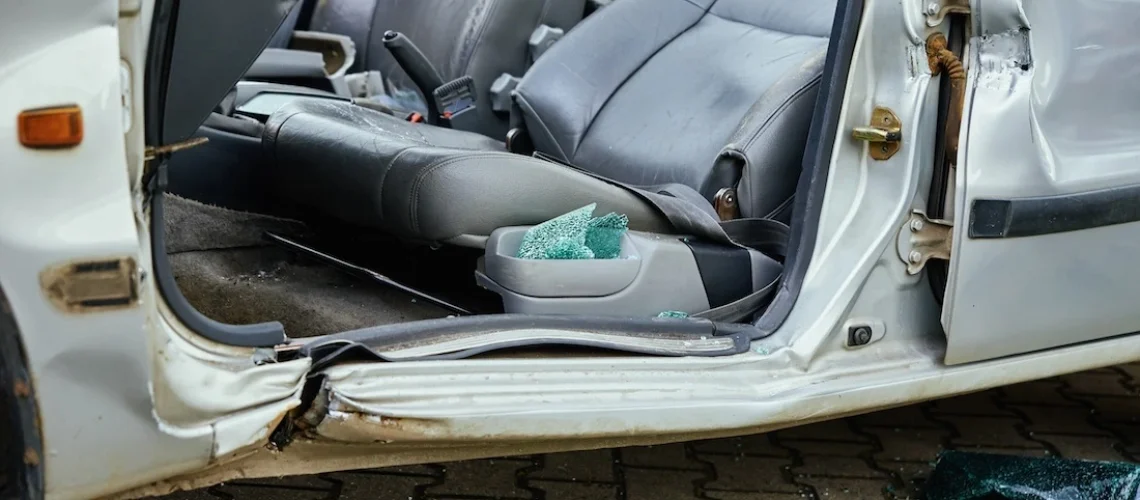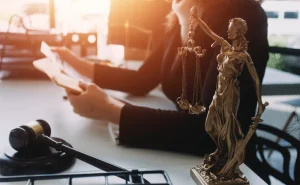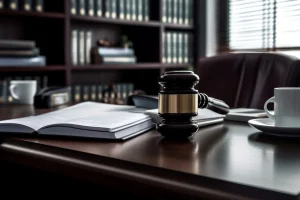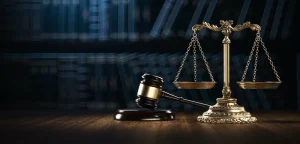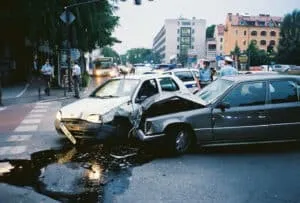Navigating the Aftermath: A Comprehensive Guide to Immediate Actions Post-Accident
Accidents, whether minor Los Angeles fender-benders or more severe collisions, can profoundly impact your physical well-being and emotional state. The moments following an accident often involve a whirlwind of emotions: confusion, fear, anger, or shock. It’s not uncommon for the stress of the situation to cloud your judgment, making it challenging to think clearly about the next steps. However, immediately after an accident, your actions are crucial for your health and safety and for protecting your legal rights and financial interests.
Understanding the importance of these immediate post-accident steps is fundamental. It’s about more than just dealing with the immediate aftermath; it’s about setting yourself up for a recovery process that is as smooth and as supported as possible. This guide aims to navigate you through the essential first steps you should take after an accident in Los Angeles, helping you to protect yourself and your rights effectively. By following the advice outlined here, you can ensure that you’re taking care of your immediate health and safety needs and laying the groundwork for any necessary legal actions or insurance claims that may follow.
Ensuring Safety: Key Immediate Actions
Immediate Actions: Securing Personal and Public Safety
In the chaotic moments following an accident, your priority should be safety. Here’s how to ensure it:
Move to Safety: If you can, move to a safe location nearby to avoid further accidents. This step is crucial to prevent additional injuries to yourself or others. If the accident is minor and the vehicle is drivable, pull over to the side of the road. If you cannot move due to injuries, try to signal for help.
Check for Injuries: Once in a safe location, assess yourself and others for injuries. Do not attempt to move if you feel severe pain or if movement exacerbates the pain. For passengers or other parties involved, ask them about their condition and avoid moving anyone who is injured, as this could worsen their condition.
Securing the Scene: Preventing Further Hazards
After ensuring personal safety, it’s vital to secure the accident scene:
Activate Hazard Lights: Turn on your vehicle’s hazard lights immediately after the accident. This serves as a signal to other drivers, alerting them to slow down and navigate around the accident scene safely.
Set Up Flares or Warning Triangles (If Safe): If you have safety flares or warning triangles in your vehicle, and it’s safe to do so, set them up to provide additional warning to oncoming traffic. This is particularly important at night or in poor visibility conditions to prevent further accidents.
Taking these steps not only prioritizes the safety of everyone involved but also helps in preventing additional accidents or injuries. Remember, the immediate aftermath of an accident can be disorienting, but focusing on safety can create a foundation for the following steps.
Seeking Medical Attention: Prioritizing Your Health
Immediate Care: Ensuring Well-being Beyond Visible Injuries
After an accident, seeking immediate medical attention is paramount, even if you believe you haven’t sustained any injuries. The adrenaline rush in the moment can mask pain, and some injuries, such as concussions or internal bleeding, may not present immediate symptoms. Here’s what you need to know:
Immediate Medical Evaluation: Visit an emergency room, urgent care, or primary healthcare provider immediately. Explain that you’ve been involved in an accident. Healthcare professionals can thoroughly examine to rule out or treat hidden injuries.
Importance of Prompt Care: Seeking medical care promptly is vital for your health and creates an official record of your condition after the accident. This can be critical if you must file an insurance claim or a legal action later.
Documentation: Building a Comprehensive Medical Record
Documenting every aspect of your medical care after an accident is crucial for several reasons:
Keep Detailed Records: Save all documentation related to your medical evaluations, treatments, prescriptions, and any other care you receive. This includes reports from emergency services, hospital visits, physical therapy, and consultations with healthcare professionals.
Record Symptoms and Progress: Beyond official medical records, keep a personal journal detailing your symptoms, pain levels, and how the injuries affect your daily life. This can provide a comprehensive view of your recovery process and the accident’s impact on your well-being.
Proper documentation is irrefutable evidence of the accident’s impact on your health and is essential for insurance claims or legal proceedings. It ensures that you are prepared to accurately demonstrate the extent of your injuries and the care required to address them, safeguarding your right to appropriate compensation.
Documenting the Scene: Capturing Crucial Evidence
Photographic Evidence: The Visual Record
In the aftermath of an accident, photographic evidence can be a pivotal factor in insurance claims and legal matters. Here’s how to capture the scene effectively:
- Scene and Vehicles: Take comprehensive photos of the accident scene from various angles, ensuring you capture the positions of all vehicles involved, any skid marks, road conditions, traffic signs, and signals.
- Damage and Injuries: Photograph all areas of vehicle damage and any visible injuries you or your passengers have sustained. Close-up shots, as well as wider angles that show the context of the damage, are both valuable.
- Consistency and Coverage: Strive for a consistent approach in capturing photos, covering as much as possible. The goal is to create a visual record that accurately depicts the accident’s aftermath.
Witness Information: Securing Verbal Evidence
Witnesses can offer impartial accounts that might clarify the events leading to the accident. Here’s how to approach gathering this crucial information:
- Contact Information: Politely ask witnesses for their names, phone numbers, and addresses. Confirm they are comfortable being contacted later for their account of the incident.
- Initial Statements: If possible, and without pressuring or leading them, ask witnesses to describe what they saw. Note or record their statements, ensuring you capture their observations accurately.
Detailed Notes: The Written Record
While the memory of the accident is still fresh, take the time to jot down everything you remember:
- Before, During, and After: Document what happened before the accident, the impact, and the immediate aftermath, including relevant details like the speed you were traveling, weather conditions, and actions taken by all parties involved.
- Conversations: Record your exchanges with the other driver(s) or witnesses. Note down anything said about the accident, including admissions of fault or descriptions of what happened.
- Emotional and Physical State: Note your immediate emotional response and any physical sensations or injuries. This can be important when recalling the shock or stress experienced during the incident.
Creating a detailed, contemporaneous record of the accident scene, witness accounts, and your recollection forms a comprehensive evidence base. This documentation is invaluable for insurance claims, legal advice, and personal reference, ensuring that your account of events is preserved accurately and thoroughly.
Reporting the Accident
Navigating the aftermath of an accident in Los Angeles can be overwhelming. However, understanding the importance of reporting the accident and obtaining a copy of the accident report can significantly aid in safeguarding your rights and ensuring your safety. This guide provides crucial insights and actionable steps to effectively manage this process, empowering you to make informed decisions during these challenging times.
Contacting Authorities: When and How to Report the Accident to the Police
When to Contact the Police: In Los Angeles, it’s essential to contact the police immediately following an accident if:
- There are injuries or fatalities involved.
- The accident blocks traffic or poses a hazard.
- There is significant property damage.
- The other party involved in the accident seems to be under the influence.
- The other driver flees the scene.
Even in minor accidents without immediate injuries, it’s wise to report the accident to the police. Some injuries or damages might not be apparent immediately, and having an official report can be crucial for insurance claims and legal purposes.
How to Report the Accident:
- Safety First: Ensure you and others are in a safe location away from traffic.
- Call 911: Provide them with your location, brief details of the accident, and whether there are any injuries. Los Angeles law enforcement or California Highway Patrol (CHP) will be dispatched as appropriate.
- Wait for the Police to Arrive: Do not leave the scene before the police arrive unless you require immediate medical attention.
- Please provide Accurate Information: Once the police arrive, give them a factual account of what happened. Avoid speculating or admitting fault.
- Gather Information: While waiting for the police, if possible, exchange contact and insurance information with the other driver and take photos of the scene and damage.
Obtaining a Report: How to Secure a Copy of the Accident Report for Your Records
After the police have been called to the scene of an accident, they will create an accident report documenting the incident. This report is a vital document for insurance claims and legal proceedings, as it provides an unbiased account of the facts surrounding the accident.
How to Obtain a Copy of the Accident Report:
- Request at the Scene: Ask the responding officer how to obtain a report copy. They will provide a report number and instructions on where and how to request it.
- Online or In-Person Requests: The Los Angeles Police Department (LAPD) and the California Highway Patrol (CHP) offer options to request accident reports online or in person. You will need the report number, accident date, and the names of the involved parties.
- Fees: There may be a nominal fee to obtain a report copy. This fee varies depending on the requesting method and the report’s length.
- Timing: The report can take a few weeks to become available. Be proactive and check the status if you haven’t received the report within the expected timeframe.
Having a copy of the accident report is crucial for your records. It not only aids in the insurance claims process but also serves as a critical piece of evidence if legal action becomes necessary. It’s your right to access this document, and securing it should be a priority as you navigate the aftermath of an accident.
Notifying Insurance Companies
After an accident in Los Angeles, promptly notifying your insurance company is crucial in the claims process. However, how you communicate with insurance companies—yours and the other parties—can significantly impact your claim. This guide provides strategic advice on making the initial contact, what information to share, and how to handle conversations with other parties’ insurers, aiming to protect your interests and facilitate a fair resolution.
Initial Contact: How to Inform Your Insurance Without Compromising Your Claim
Timing is Crucial: Contact your insurance company as soon as possible after the accident, adhering to the timeline specified in your policy. Delaying this step could complicate the claims process.
Stick to the Facts: When reporting the accident, provide a clear, factual account of what happened without admitting fault or speculating about the causes. Insurance adjusters will use your statements as part of their investigation to determine liability and coverage.
Documentation is Key: Share information about the date, time, and location of the accident, the type of accident (e.g., rear-end collision), and any immediate damages or injuries observed. If the police were involved, provide the report number.
Inquire About Your Coverage: Ask about the specific coverages in your policy that may apply, such as collision, comprehensive, medical payments, or uninsured motorist coverage. Understanding your coverage will help set your expectations for the claims process.
Information to Share: What Information You Should and Shouldn’t Disclose
Should Share:
- Basic Details: Your name, policy number, and the date and location of the accident.
- Factual Information: Details about the accident that are factual and straightforward.
- Documentation: Police reports, accident scene photos, and witness information.
Shouldn’t Share:
- Speculations: Avoid guessing who was at fault or the extent of injuries.
- Recorded Statements: Be cautious about providing recorded statements, especially if you haven’t fully assessed the damage or injuries.
- Personal Opinions: Refrain from sharing personal opinions about the accident or the other party involved.
Dealing with Other Parties’ Insurers: Navigating Conversations with Other Involved Parties’ Insurance Companies
Please proceed with Caution: When the other party’s insurance company contacts you, remember that their goal is to minimize financial exposure. Be polite but cautious in your communications.
Limited Information: Provide them basic information about the accident, but avoid detailed discussions about fault, injuries, or damages. Politely decline to give recorded statements without consulting with your attorney first.
Consult Your Attorney: Before engaging in detailed discussions with the other party’s insurer or signing any documents, it’s wise to consult a personal injury attorney. They can provide valuable guidance and represent your interests in negotiations.
Communicate Through Your Insurer: Consider informing your insurance company about any contact made by other insurers and letting them handle communications. Your insurer’s experience and expertise in dealing with such matters can be a significant advantage.
Notifying insurance companies and navigating the subsequent conversations requires a balance of promptness, accuracy, and caution. By understanding what information to share and how to manage interactions with insurance adjusters, you can protect your rights and support a fair evaluation of your claim. Always remember, when in doubt, consulting with a legal professional can provide clarity and confidence as you navigate the complexities of insurance claims following an accident.
Consulting With a Personal Injury Attorney
After a Los Angeles accident, consulting with a personal injury attorney can be pivotal in ensuring your rights are protected, and you receive fair compensation for your injuries and losses. This section guides you through recognizing the right time to seek legal advice, choosing the right attorney for your case, and leveraging free consultations to your advantage.
When to Consult an Attorney: Identifying the Right Time to Seek Legal Advice
Significant Injuries or Damages: If you or a loved one has sustained severe injuries or significant property damage, consulting with an attorney can help you understand the full scope of your legal options and the compensation you may be entitled to.
Disputed Liability: If there is a dispute over who is at fault for the accident or if the other party’s insurance company denies your claim, it’s crucial to have legal representation to advocate on your behalf.
Complex Legal Issues: Accidents involving complex legal issues, such as those with multiple parties, commercial vehicles, or government entities, require the expertise of an attorney to navigate the legal complexities.
Insurance Settlement Offer: Before accepting any settlement offers from insurance companies, consult an attorney to ensure the offer adequately covers all your medical expenses, lost wages, and other related costs.
Choosing the Right Attorney: What to Look for in a Personal Injury Attorney
Experience: Look for an attorney with specific experience in personal injury law and a track record of successfully handling cases similar to yours.
Reputation: Consider the attorney’s reputation within the legal community and among past clients. Online reviews, ratings, and referrals can provide valuable insights.
Communication: Choose an attorney who communicates clearly and keeps you informed throughout the legal process. You should feel comfortable asking questions and confident in their responses.
Resources: Ensure the attorney has the resources to investigate your case thoroughly, including access to medical experts, accident reconstruction specialists, and other professionals.
Fee Structure: Most personal injury attorneys work on a contingency fee basis, meaning they only get paid if you win your case. Understand the fee structure, including any potential costs you may be responsible for.
Free Consultation: Making the Most of Free Consultations Offered by Many Attorneys
Be Prepared: Bring all relevant documents to your consultation, including police reports, medical records, and correspondence with insurance companies. This will allow the attorney to assess your case accurately.
Ask Questions: Use the consultation to ask questions about the attorney’s experience, approach to cases like yours, and their assessment of your case’s strengths and weaknesses.
Understand the Process: Discuss the legal process, including timelines, what to expect regarding communications, and how the attorney will approach negotiations with insurance companies.
Evaluate Compatibility: Assess whether you feel comfortable with the attorney’s communication style and approach to your case and if they are genuinely interested in helping you achieve a favorable outcome.
Consulting with a personal injury attorney can dramatically impact the outcome of your case. By identifying the right time to seek legal advice, choosing an attorney that fits your needs, and making the most of free consultations, you can navigate the aftermath of an accident with confidence, knowing your rights are protected, and you’re on the path to securing the compensation you deserve.
Avoiding Common Pitfalls
After an accident in Los Angeles, navigating the aftermath with caution is crucial to protect your rights and maximize your potential compensation. Specific actions can inadvertently jeopardize your claim, making it essential to be aware of common pitfalls.
This section explores the dangers of admitting fault at the scene, the impact of social media on your claim, and the risks associated with accepting quick settlements from insurance companies.
Admitting Fault: The Dangers of Admitting Fault at the Scene
Immediate Repercussions: At the accident scene, emotions run high, and it’s natural to want to apologize or admit fault, even if you’re not sure what happened. However, such admissions can be used against you by insurance companies and other parties to reduce or deny your claim.
Fault is Complex: Determining fault often requires a thorough investigation, including examining the accident scene, vehicle damage, and police reports. What seems clear now may not reflect the whole story or the legal definition of fault.
Advice: Instead of discussing fault at the scene, focus on ensuring everyone’s safety, contacting the authorities, and gathering evidence. Let investigators and legal professionals determine fault based on the facts.
Social Media: How Social Media Can Affect Your Claim
Public Statements: Social media posts, photos, or comments about your accident or injuries can be accessed by insurance adjusters and used to dispute your claim. Even seemingly innocent posts can be taken out of context to suggest your injuries are less severe than claimed.
Privacy Settings: While adjusting privacy settings may offer some protection, it’s best to assume anything posted online could be discovered by those investigating your claim.
Advice: Consider taking a break from social media or at least refrain from posting anything related to your accident, injuries, or recovery process. When in doubt, consult with your attorney before sharing any information publicly.
Quick Settlements: The Risks of Accepting Quick Settlements from Insurance Companies
Undervalued Offers: Insurance companies often offer quick settlements to minimize their payouts. These initial offers may not fully cover your medical expenses, lost wages, and other damages, especially if the full extent of your injuries has not yet been realized.
Long-Term Consequences: Accepting a quick settlement means waiving your right to seek additional compensation later if your condition worsens or other costs arise.
Advice: Before accepting any settlement offer, consult a personal injury attorney who can evaluate the offer’s fairness and negotiate on your behalf if necessary. An experienced attorney will consider your current and future needs to ensure the settlement covers the full scope of your damages.
Navigating the post-accident landscape requires a careful approach to avoid common pitfalls that could compromise your claim. By understanding the implications of admitting fault, the impact of social media, and the risks associated with quick settlements, you can take informed steps to protect your rights and secure the compensation you deserve. Always seek professional legal advice to guide you through these complex issues effectively.
Understanding Your Rights
After experiencing an accident in Los Angeles, it’s vital to clearly understand your legal rights, including the types of compensation you may be entitled to and the statute of limitations for filing a claim. This knowledge empowers you to pursue the compensation you deserve and ensures you take action within the legal timelines.
Compensation You May Be Entitled To: Overview of Potential Compensation for Damages and Injuries
Victims of accidents in Los Angeles may be entitled to various forms of compensation, covering both tangible and intangible losses. Understanding these can help you grasp the full extent of your entitlements under the law.
Medical Expenses: This includes compensation for past, present, and future medical treatments related to your injuries. It covers hospital stays, doctor visits, medication costs, rehabilitation, and any specialized medical care or equipment needed.
Lost Wages: If your injuries prevent you from working, you may be entitled to compensation for lost wages. This includes wages you’ve already lost and loss of earning capacity if your injuries affect your ability to work in the future.
Property Damage: If the accident resulted in damage to your property, such as your vehicle, you could receive compensation for repair or replacement costs.
Pain and Suffering: This compensation is for the physical pain and emotional distress you’ve experienced due to the accident and your injuries. It acknowledges the non-economic impact of your experience.
Punitive Damages: In cases where the defendant’s conduct is especially harmful, punitive damages may be awarded to punish the wrongdoer and deter similar behavior in the future.
Statute of Limitations: Understanding the Time Limits for Filing a Claim
The statute of limitations is a law that sets the maximum time after an event within which legal proceedings may be initiated. In California, the statute of limitations for most personal injury cases is two years from the date of the injury. If you claim against a city, county, or California state government agency, you have six months to file a claim.
Critical Timing: Initiating legal proceedings within these time frames is crucial. Failing to file a claim within the statute of limitations typically results in losing your right to sue for compensation for your injuries and losses.
Exceptions: Some exceptions exist to these general rules, such as for minors or cases where the injury was not discovered immediately. An experienced personal injury attorney can provide advice tailored to your specific situation.
Understanding your rights to compensation and the importance of the statute of limitations is essential for anyone involved in an accident in Los Angeles. This knowledge helps you navigate the legal system more effectively and ensures that you take the necessary steps to protect your interests and secure the compensation you rightly deserve.
Given the complexities involved, consulting with a personal injury attorney can provide personalized guidance and help you make informed decisions about your case.
Long-Term Considerations
After an accident in Los Angeles, focusing on immediate concerns is natural, but it’s equally important to consider the long-term implications of your situation. This includes the need for ongoing medical care and understanding the trajectory of the legal process related to your personal injury claim. These long-term considerations are crucial for your recovery and protecting your rights.
Follow-Up Medical Care: The Importance of Continued Medical Treatment and Documentation
Continuity of Care: Ongoing medical treatment is essential for physical recovery and is crucial to your personal injury claim. Continued care helps document the extent and progression of your injuries, which can significantly impact the outcome of your claim.
Documentation: Keeping detailed records of all medical treatments, diagnoses, and recommendations is critical. This documentation shows the injuries you sustained and their connection to the accident. It also provides a basis for calculating compensation for medical expenses, both current and anticipated.
Specialist Consultations: Depending on the nature of your injuries, follow-up care may involve consultations with specialists. This specialized care contributes to a more comprehensive recovery plan and adds to the body of evidence supporting the complexity and severity of your injuries.
Impact on Compensation: The extent of your medical treatment, documented through ongoing care, directly influences the compensation you may be entitled to. It substantiates claims for medical expenses, pain and suffering, and loss of quality of life.
Ongoing Legal Process: What to Expect in the Days, Weeks, and Months Following the Accident
Initial Investigation: The period immediately following your accident will involve a detailed investigation into the event’s circumstances. This includes gathering evidence, consulting with experts, and establishing liability.
Negotiations with Insurance Companies: Your attorney will negotiate with insurance companies. This process can be lengthy and requires patience. Your legal team will work to ensure that any settlement offer adequately covers your losses and expenses.
Litigation: If a fair settlement cannot be reached through negotiations, your case may proceed to trial. The litigation process can extend over several months or even years, during which your legal team will prepare your case, including discovery, depositions, and trial preparation.
Resolution and Recovery: The conclusion of your legal case will resolve your claims, whether through a settlement or a court verdict. The focus then shifts to your recovery and how to utilize best the compensation you’ve received to support your long-term health and well-being.
Understanding and preparing for the long-term considerations following an accident is essential. It ensures you’re taking steps toward physical recovery and actively protecting your legal rights and interests.
Engaging in continued medical care and being prepared for the duration of the legal process are vital components of a comprehensive recovery strategy. Throughout this journey, having the support and guidance of experienced professionals, from medical practitioners to legal counsel, will be invaluable in navigating these complex waters toward a hopeful and healthy future.
Navigating the Road to Recovery: A Comprehensive Wrap-Up
Navigating the aftermath of an accident in Los Angeles demands a careful and informed approach to protect your health and legal rights. This guide has outlined essential steps following an accident, from the immediate actions at the scene to long-term considerations for your recovery and legal claim. Let’s recap the key points to keep in mind:
- Ensure Safety and Seek Medical Attention: Prioritize the safety of everyone involved and seek immediate medical care, even if injuries are not immediately apparent.
- Report the Accident: Contact the authorities to report the accident and obtain a copy of the accident report, as it’s vital for your legal claim.
- Document Everything: Gather evidence at the scene and document all aspects of the accident and your injuries, as this documentation is crucial for your claim.
- Notify Insurance Companies: Inform your insurance company about the accident, but be cautious about sharing details that could compromise your claim.
- Consult with a Personal Injury Attorney: Early consultation with an attorney can guide you through the legal process and help protect your rights.
- Avoid Common Pitfalls: Be mindful of actions that can jeopardize your claim, such as admitting fault, sharing details on social media, or accepting quick settlements.
- Understand Your Rights: Familiarize yourself with the compensation you may be entitled to and the statute of limitations for filing a claim.
- Consider Long-Term Implications: Engage in ongoing medical care and brace for the length of the legal process, keeping your long-term recovery in focus.
As you move forward, it’s crucial to prioritize your health and well-being alongside your legal rights. The journey following an accident can be challenging, but with the right steps and support, you can navigate this difficult time more effectively. Remember, you’re not alone; professional legal and medical help is available to guide you through the recovery process and ensure you receive the compensation and care you deserve.
This guide provides valuable insights and practical advice to help you through these challenging times. If you find yourself in such unfortunate circumstances, remember these steps and consider contacting a qualified personal injury attorney who can offer personalized guidance tailored to your situation. Your health, your rights, and your future are worth protecting.
Additional Resources
In the aftermath of an accident, arming yourself with information and knowing where to seek help can significantly impact your recovery journey and the success of your legal claim. Below is a curated list of additional resources for further reading and exploration. These resources can provide deeper insights into your rights, the legal process, and how to secure the best possible outcome following an accident.
Links to External Resources for Further Reading:
National Highway Traffic Safety Administration (NHTSA): nhtsa.gov – Offers comprehensive information on road safety, accident prevention, and steps to take after an accident.
Centers for Disease Control and Prevention (CDC) – Motor Vehicle Safety: cdc.gov/motorvehiclesafety – Provides resources on injury prevention and control related to vehicular accidents.
American Bar Association – Personal Injury: americanbar.org/groups/public_education/resources/law_issues_for_consumers/injury – Offers legal resources and guides for individuals dealing with personal injury cases.
Legal Aid Foundation of Los Angeles: lafla.org – Provides legal assistance to low-income individuals and has resources related to personal injury and other legal matters.
Consumer Reports – Car Insurance Guide: consumerreports.org/cro/car-insurance – Offers advice on dealing with car insurance claims and policies.
These resources are a starting point for further exploration into the complexities of navigating post-accident procedures, understanding your rights, and ensuring you’re adequately compensated for your losses.
Contact Information for Legal Assistance:
Los Angeles County Bar Association Lawyer Referral Service:
- Website: smartlaw.org
- Phone: (213) 243-1525
This service can connect you with pre-screened lawyers in your area who specialize in personal injury law, ensuring you receive expert legal advice tailored to your specific situation.
California State Bar Attorney Search:
This tool allows you to search for licensed attorneys in California, providing information on their practice areas and contact details.
Remember, the journey to recovery and justice after an accident can be complex and challenging, but you don’t have to navigate it alone. Utilizing these resources and seeking professional legal assistance can provide the support and guidance necessary to move forward effectively.
Contact Phoong Law for Legal Help
If you or a loved one has been involved in an accident and are seeking expert legal assistance, Phoong Law is here to help. Recognized as one of the best law firms in Los Angeles, our dedicated team is committed to advocating for your rights and securing the compensation you deserve. With a proven track record of success in personal injury cases,
Phoong Law combines compassionate client care with aggressive legal strategies. For a consultation or to discuss your case, contact us at 866-GOT-PAIN or visit our website to fill out a contact form. At Phoong Law, we understand the challenges you’re facing, and we’re here to support you every step of the way. Let us help you navigate your legal journey with the expertise and dedication you deserve.
Disclaimer: The content provided in this blog is for general informational and educational purposes only. The views, opinions, and information expressed in the blog posts reflect the author’s perspective when writing and are subject to change. The author makes no representations or warranties of any kind, express or implied, about the blog content’s completeness, accuracy, reliability, suitability, or availability for any purpose.
The blog content is not intended to be a substitute for professional advice, whether medical, legal, financial, or otherwise. Always seek the guidance of a qualified professional with any questions you may have regarding your specific situation. Never disregard professional advice or delay seeking it because of something you have read on this blog.
The author of this blog shall not be held liable for any errors, omissions, or inaccuracies in the information provided or for any actions taken or not taken based on the content of the blog posts. The author shall not be responsible for any damages or losses arising from the use of or reliance on the information contained within the blog.
This blog may contain links to external websites or resources that are not under the author’s control. The author does not endorse or assume any responsibility for these third-party sites’ content, accuracy, or privacy policies. Clicking on external links is at your own risk, and you should review those sites’ terms and conditions and privacy policies before engaging with them.
The views and opinions expressed in this blog are those of the author and do not necessarily reflect the official position of any organization or entity with which the author may be affiliated.
Unless otherwise stated, the author retains all rights, title, and interest in the original content published on this blog. Unauthorized use, reproduction, or distribution of the blog content without the author’s explicit consent is strictly prohibited.
The author reserves the right to modify or update this disclaimer without prior notice. It is your responsibility to review this disclaimer periodically for any changes.
By accessing and using this blog, you acknowledge that you have read, understood, and agree to be bound by this disclaimer and its terms and conditions.



